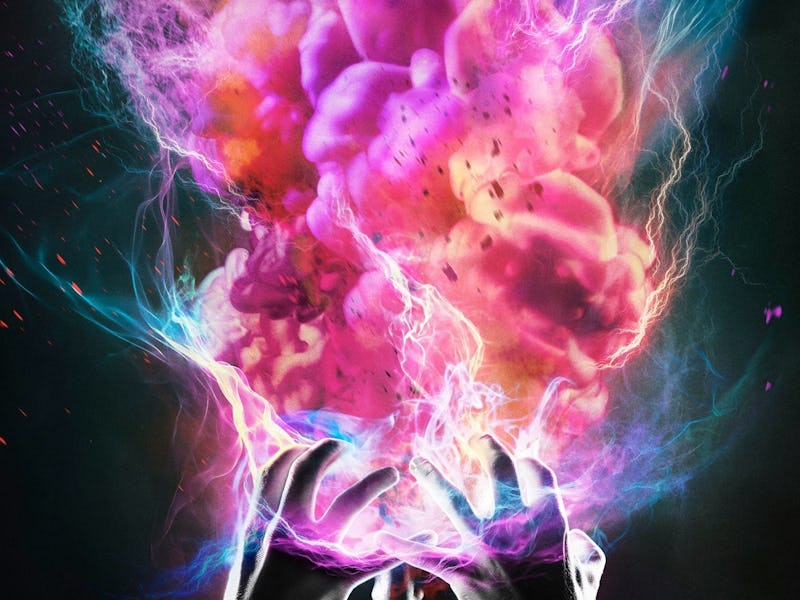'Logan' and 'Legion' Can Reset the X-Men Franchise in 2017
It's about time mutants get a comeback.

Before X-Men, superhero movies came in one of three varieties: Batman, Superman, or total bullshit. But in 2000, Bryan Singer’s leather-clad action flick made action stars out of comic book heroes like Wolverine and Cyclops. Its $54 million domestic opening weekend was, at the time, a colossal win that manifested in a revelation: There’s money to make from these “comic books.” By respecting the genre, superhero films emerged as a bonafide influential force, but 17 years later, the X-Men have fallen behind and are in desperate need of a new start. This year’s Logan and Legion collectively present a rare opportunity for the franchise.
Past the hype, X-Men is a B- action movie, at best, but that didn’t matter in 2000. The film paved the way for more “comic book” movies to attract high production budgets and still stay devout to the source material and its integrity, even if the cinematic X-Men looked nothing like their colorful ancestors. (“What would you prefer? Yellow spandex?”) In spite of this legacy, the X-Men series has been stiff, unable to keep pace with competition like Christopher Nolan’s Batman trilogy and the Marvel Cinematic Universe. Across eight movies and counting, the X-Men franchise hovers between just plain bad (X-Men Origins: Wolverine) to good, not great (X-Men: Days of Future Past). Improvement in VFX and more accurate costumes haven’t been enough to elevate the series past its creative highest in 2003’s X2.
Last year’s X-Men: Apocalypse wasn’t bad in a way that was offensive to the senses, but it was a lame, slow, and bloated entry in a divisive year for superhero buffs. After the deafening thud of Batman v Superman, the sins of X-Men: Apocalypse were clear as day, leaving the cameos and teases for future installments as lightyears more interesting — and more like X-Men comics — than the film’s real pieces. The final scene with Mystique training Cyclops and Jean Grey in the Danger Room was the most the X-Men films have come to life, and it lasted barely a minute.
Neither Logan — the last Wolverine movie with Hugh Jackman and a loose adaptation of Mark Millar’s Old Man Logan — nor Legion — the new FX series from Fargo creator Noah Hawley based on Chris Claremont and Bill Sienkiewicz’s mentally ill mutant anti-hero — look slavish to any X-Men comic. But perhaps now, that’s its strongest asset.
Today, the MCU and the DC Extended Universe have prided on adhering as close to comics as possible, be it visually — Doctor Strange paid plenty respect to Steve Ditko — or in its rudimentary “like the comics” storytelling; Batman v Superman notoriously mashed The Dark Knight Returns and The Death of Superman into one exhausting experience. This isn’t the case for Logan and Legion. Though they are “connected” in the same universe, each is trying hard to distance itself from the continuity in order to tell its own stories without bothering with stuff someone else set in place a long time ago.
Though Logan does have an old Wolverine that’s outlived the rest of his X-Men brethren, it’s not the post-apocalypse where supervillains have taken over like in Millar’s graphic novel. There are no inbred Hulks (thank god) nor any bleak background events like Daredevil and Punisher getting eaten alive in an arena (guys, Old Man Logan was crazy AF). And there is absolutely no direct source material that Legion is referring to, not even Claremont’s and Sienkiewicz’s, New Mutants even though they have credit on the show.
Neither Legion nor Logan will stay in pace with its competition this year. Legion isn’t anything like Agents of S.H.I.E.L.D. or the DC TV shows on the CW, nor is Logan like Marvel’s Spider-Man: Homecoming or DC’s Wonder Woman. And these are all good things. When X-Men released in 2000, it wasn’t like any other superhero flick before. Now, Legion and Logan won’t be like any superhero film or show out there today.